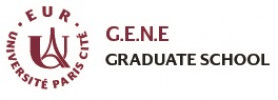© Pint of Science, 2025. All rights reserved.
Do you believe you can always trust your brain? Maybe not! Indeed, it can fool us in many ways. Tonight, you will discover how you can be tricked by numbers, by your perception when you move, or even by fake news.
The dark spots of our mathematical intuition
Raphaël Lachièze-Rey
(assistant professor, MAP5 lab, Université Paris Cité)
Despite many people claiming they are “not good at math”, most of us have strong intuitive math skills. However, there remain a few dark spots where we are fooled consistently by our logic. This is why some politicians can easily play with numbers and improve their standings, or why one should not be afraid (sometimes) if one has a positive test for a severe disease. Raphaël will talk about these counterintuitive findings explained by Bayes formula, and we shall also discuss Simpson's paradox, which can lead to very surprising assessments about, for instance, vaccine efficiency.
What visual illusions teach us?
Mark Wexler
(team leader, Integrative Neuroscience and Cognition Center, CNRS and Université Paris Cité)
Visual illusions are as amusing to watch as magic tricks. However, they can also teach us about how perception works. What do we mean by how perception "works"? Most of the time it's so automatic that we don't notice it working. We look at a tree and we see - a tree, and don't realize how hard it is to create a system that can perceive so well. But when we look at two objects that have the same shape or movement and see different shapes or movements, we realize how difficult perception can be, and learn lessons from these illusions. Mark will illustrate this with a few "amusing" examples.
Would you like News with or without doubt?
Bérangère Rousselot-Pailley
(assitant professor, Psychoanalysis, Medicine and Society Research Center, Université Paris Cité)
Fake News deceive our sense of analysis. This is explained by the fact that there are flaws in our mode of reasoning, called cognitive bias. Some of them are indeed very mobilized when it comes to fake News: the Dunning-Kruger effect, the priming effect, confirmation bias, etc. - all of which being jointly known as reasoning bias. There are nevertheless some methods that allow us to avoid falling into the trap set by our brain, often by reason of easiness.
© les contributeurs OpenStreetMap


